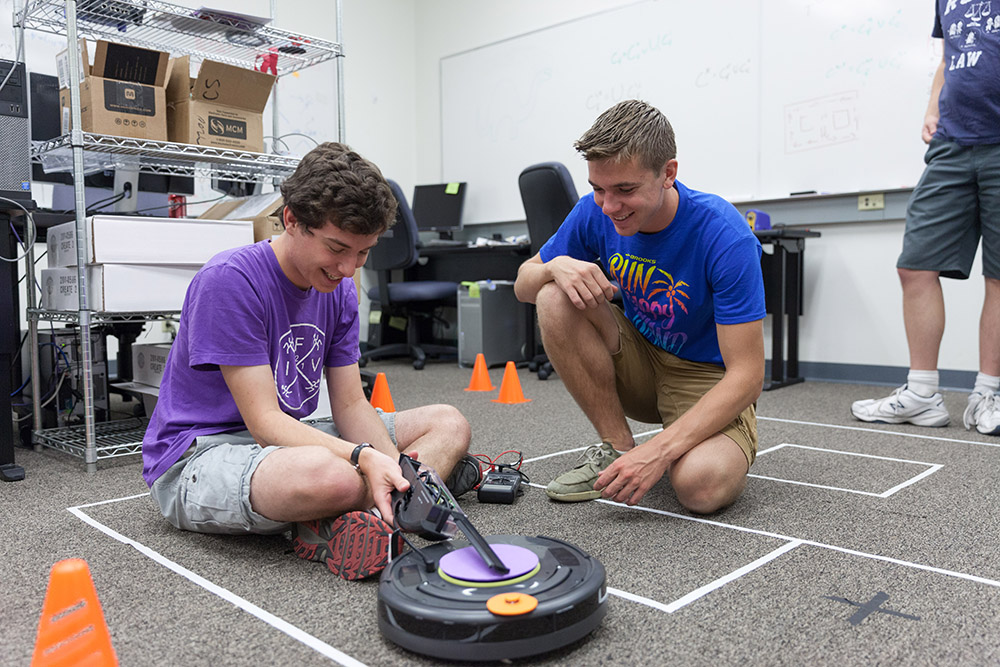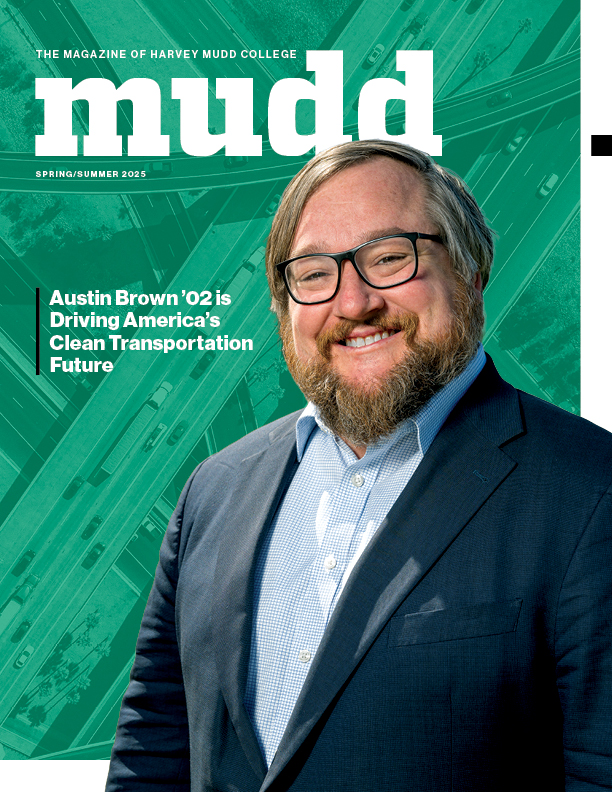Lab Heats Up With Second RSS Poster
June 13, 2016
Imagine a warehouse where a team of robots must coordinate its movements in a well-defined grid to fetch and deliver pallets so that human workers can pick and place items from the pallets into shipping boxes. The exact duration of a robot’s transition time from one location to another may be beyond the control of the robot due to unanticipated conditions including battery life, dynamic obstacles or slippage.
The Harvey Mudd College HEATlab’s Robot Brunch project is exploring what it takes for multiple robots to schedule robust interactions—interactions that can account for unexpected circumstances—in the messiness of the real world. In a research paper titled “Robust Multi-robot Scheduling,” Robot Brunch members Kyle Lund ’17 (Individual Program of Studies in robotics), Sam Dietrich ’17 (engineering) and Scott Chow ’17 (computer science) experiment with algorithms to understand the best way to schedule events between robots in the face of scheduling uncertainty. The work is a continuation of a previous research project titled “Robust Execution Strategies for Probabilistic Temporal Planning.”
The authors have been invited to present the paper at the Online Decision Making in Multi-robot Coordination workshop, June 19 at the University of Michigan, Ann Arbor. The workshop is part of the 2016 Robotics: Science and Systems (RSS) Conference, a top international robotics conference, and is the result of a highly selective review process. One other Harvey Mudd team, also from the HEATlab, will present its research on human-robot trust.
Dietrich says a big component of the Robot Brunch team’s research consists of comparing its own algorithms to other scheduling algorithms to better understand when and why theirs are more effective. And the work has implications for more than just robot scheduling, he says.
“An interesting aspect of our probabilistic scheduling work is that it isn’t applicable to only robots. We could apply the same strategies if robots and humans—or even just humans—needed to coordinate to avoid conflict.”
The theme of the workshop, online decision making, describes an important part of robotic problems where mobile robots operate in unknown or partially known dynamic environments in order to achieve a predefined goal. Workshop attendees will share ideas and approaches related to online decision making, with particular focus on missions such as multi-robot exploration, persistent environment monitoring, surveillance and reconnaissance tasks.
“This work takes an important step in ensuring that the artificial intelligence technologies we design are safe and reliable, no matter what unexpected things might happen,” says Assistant Computer Science Professor and HEATlab director Jim Boerkoel. “Robustly dealing with uncertain environments will be critical in designing AI systems that are safely and reliably beneficial to humans.”
